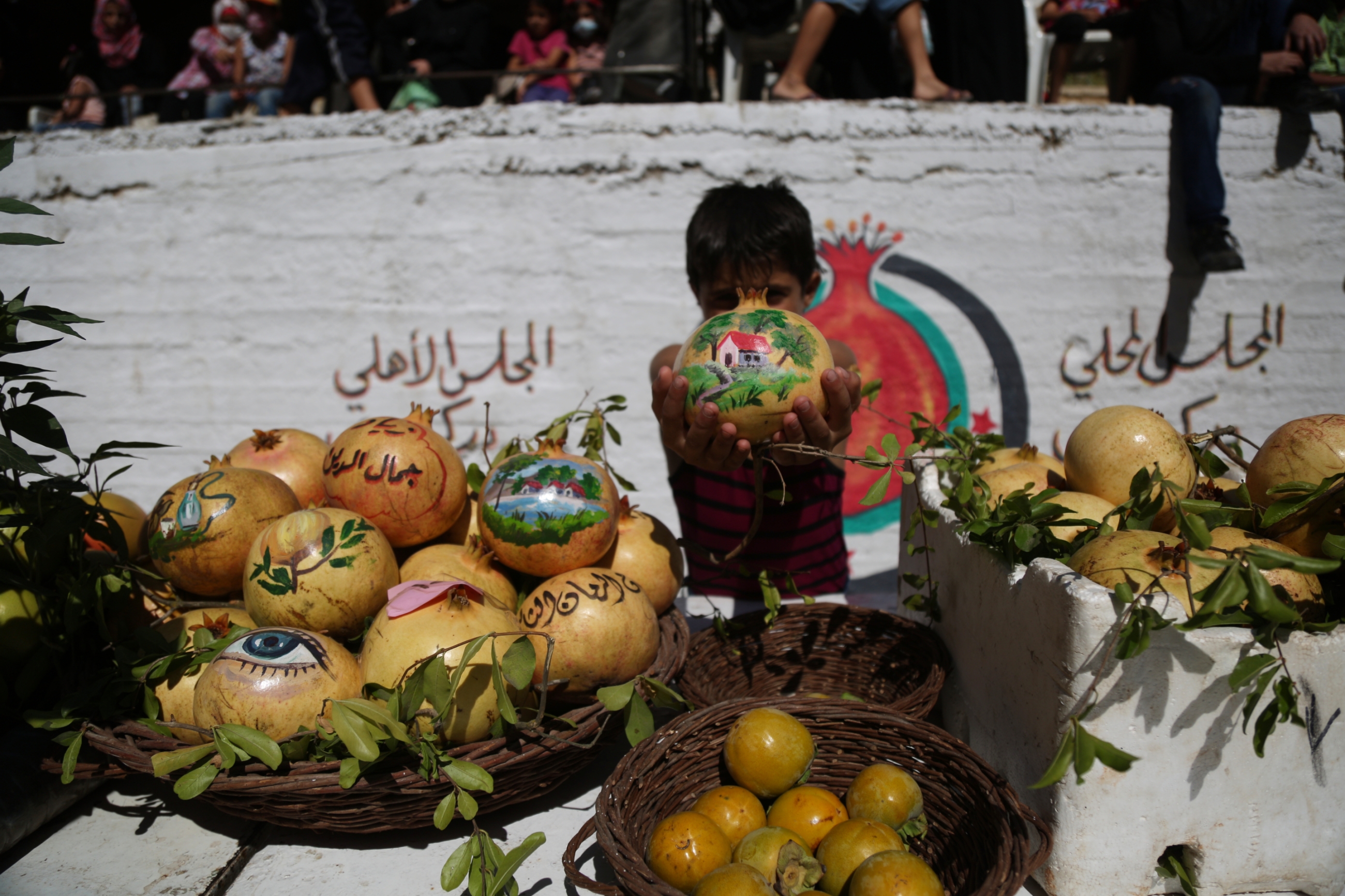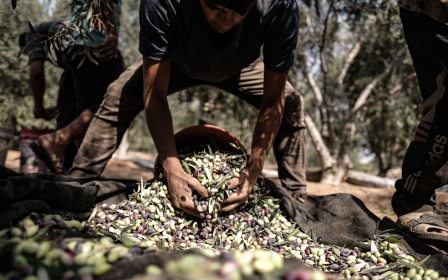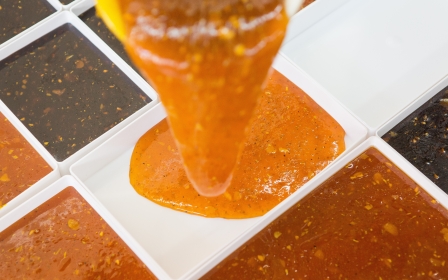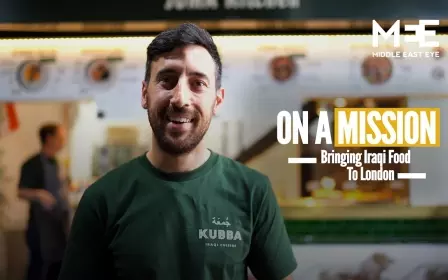In pictures: Pomegranate festival returns to Syria’s Idlib
For the third year in a row, people from the city of Darkoush, in the western countryside of Syria’s Idlib, gathered for the highly anticipated pomegranate festival. The event celebrates the city’s local produce and ingredients and holds a competition for who has the best pomegranates. For the attendees and organisers it represents the city and overcoming the various challenges and difficulties imposed as a result of the war, which is now in its ninth year. (All photographs by Ali Haj Suleiman/MEE)
“The message we want to convey from the festival has political, cultural, tourism and humanitarian purposes. We want to spread love to the world as we are a nation that suffered from a lot of destruction under Assad’s forces,” said Samer Alwani, one of the festival's organisers. “We want to show that we are committed to the revolution, and want to rebuild the country hand in hand with everyone and portray a civilised image of our country to the world.”

Participants in the pomegranate competition set up stalls to showcase their harvests and compete with others in front of a panel of judges. Vendors were stationed along the Orontes River, where attendees could also buy handicrafts and street food.
There are several varieties of pomegranate in the Darkoush region, such as the al-Lafan, which is larger in size and pink in colour, the al-Faransy, which is smaller in size and is redder in colour, and the al-Asfoury, which is small and seedless. According to participants at the festival, the most sought-after and best variety in this region of Syria is the al-Lafan, because of its size. The region is also known for the molasses and juice made from pomegranates.
The panel of judges includes agronomists, experienced farmers and local pomegranate tradesmen. They inspect the produce and judge them based on their colour, size and seeds.
One of the winners of the competition, Ahmed Salem Khadro, said that winning came as an "unexpected surprise". Khadro, aged 29, comes from a family that works in pomegranate farming and has continued to develop techniques, which he believes is the reason behind his win. “I worked hard and reaped the rewards,” he said. “I hope all the participants get to experience coming first in the coming years.” According to Khadro, coming first increases demand for his produce in the markets. “It means a lot to get this, and to know that all the hard work and ploughing of land has been appreciated.”
For some attendees, this year’s festival was their first experience of the event. Salam Hamido, 24, said that she was encouraged to attend the festival after hearing about how well-known the region was for planting pomegranates. Hamido travelled from the city of Kafr Nabl, in the southern countryside of Idlib, to participate in the activities, which ranged from boat-racing to food stalls as well as the competition and meeting agricultural experts. “Attending the event allowed me to escape from the atmosphere of war,” Hamido said.
Middle East Eye propose une couverture et une analyse indépendantes et incomparables du Moyen-Orient, de l’Afrique du Nord et d’autres régions du monde. Pour en savoir plus sur la reprise de ce contenu et les frais qui s’appliquent, veuillez remplir ce formulaire [en anglais]. Pour en savoir plus sur MEE, cliquez ici [en anglais].




